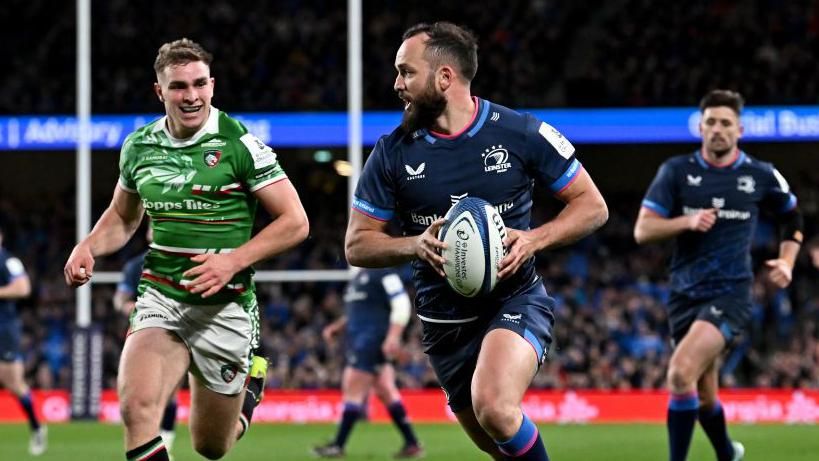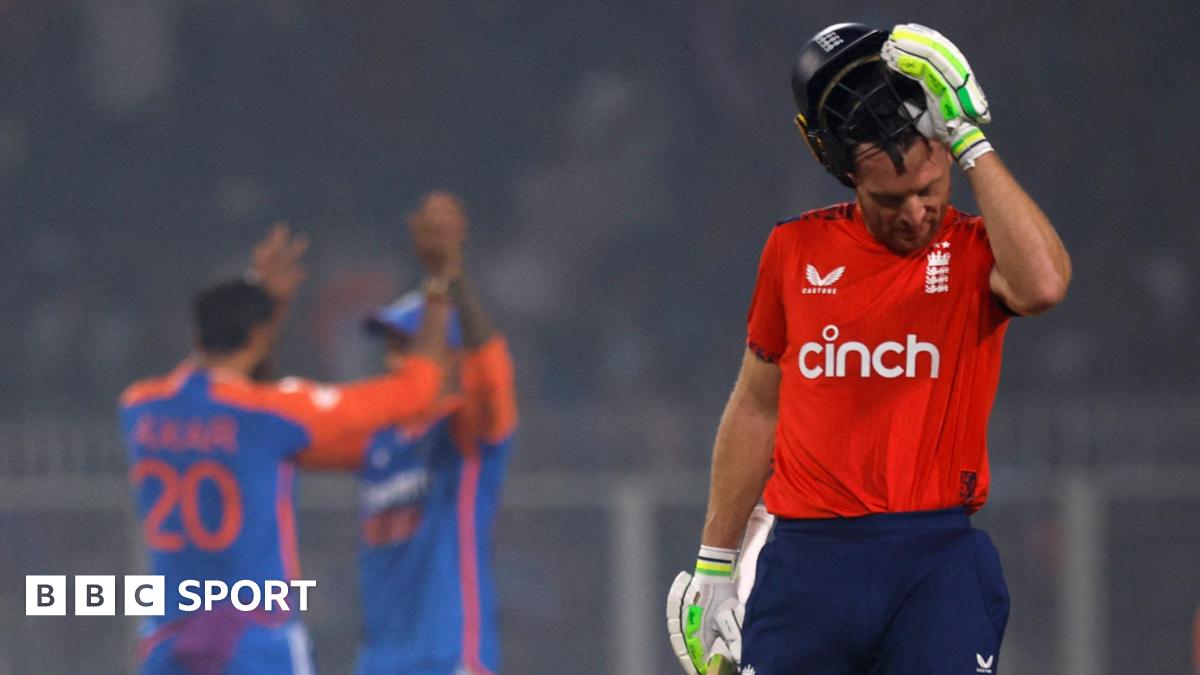ARTICLE AD BOX
 Image source, Getty Images
Image source, Getty Images
Leicester's Jack van Poortvliet and Leinster's Jamison Gibson-Park only currently face-off in European or international fixtures
Rugby Union Correspondent
Talk of a British and Irish league has been rumbling away for years, without any genuine expectation it will ever get off the ground.
But the talk won't go away.
In October 2023, Rugby Football Union boss Bill Sweeney revealed tentative discussions were ongoing, while it continues to be mooted in the corridors of power and was a topic of conversation at an English clubs’ board meeting this week.
While not denying the discussions, Premiership Rugby figures have been keen to play it down – "periodic long-term benchmarking" is the sexy phrase used by one senior source. But while far-fetched, it is a fascinating concept.
So why is it being discussed, and how realistic is it?
Even though both the Premiership and the United Rugby Championship have publicly declared themselves delighted with their existing products, club rugby union has nonetheless endured a turbulent period.
From a Premiership point of view three major top-flight teams have gone into extinction, while the financial bounce back from the pandemic is below forecasted levels. The product on the pitch continues to be good, with attendances and audiences up, but senior figures at various clubs are still predicting a tough few years ahead.
Despite the financial uplift from the recent Professional Game Partnership, central revenues have dipped. The television market has been stagnant.
Broadcasters TNT Sports have been a loyal and valuable partner to the Premiership - and are signed up until 2026 - but since Sky Sports dropped out of the club rugby market, there has been no competition for rights.
Image source, Getty
Image caption,Broadcasters TNT have produced innovative coverage of the English top-flight but the value of the rights has not risen as much as organisers would like
Furthermore, since the league went from 13 teams to 10, clubs have lost two home games per season, worth up to £1m of revenue.
A 10-team league has many things going for it: for example a concentration of talent across the clubs and less crossover with the international game. With a vibrant second tier underneath, it might well be the future.
But, as it stands, it is not making enough money.
"We just had our fastest ever sellout to the final, and attendances and TV viewership are up - fans love Premiership Rugby and so do our partners," insists a Premiership Rugby source, and there is no doubt plenty of good work is being done.
But any improvements are - and are likely to be - incremental.
As one senior club source told the BBC this week, only something drastic would make the changes required to properly revolutionise and future-proof the club game.
How would new league look?
One idea would be to take the 10 Premiership teams, the four from Ireland, four from Wales and two from Scotland to make a 20-team competition, with two divisions of 10 and promotion and relegation between the two.
The key would then be to attract lucrative broadcast and sponsorship deals which would dwarf existing agreements. "To rip up a league it would have to be blockbuster and benefit all," adds another club source.
But if not a British and Irish league, what about Anglo-Welsh?
Many players and supporters in Wales yearn to join the English system, re-establishing the decades worth of rivalries so popular in the amateur era. A swathe of the Welsh rugby public remain baffled that they play more club rugby in Bloemfontein than Bristol.
However, while this would be welcomed by the Welsh and those English clubs located in the south-west, there is a feeling it would not benefit the Premiership as a whole.
While a British and Irish league is still considered unlikely, as things stand it is more realistic than an Anglo-Welsh merger.
Where would it leave South Africa and Italy?
Image source, Getty Images
Image caption,The Stormers beat the Bulls in an all-South African URC final in 2022
One of many complications is how a British and Irish league would leave the South African and Italian teams out in the cold. While the Italians could strike a deal to enter the French system, South Africa is a different proposition.
As one of the greatest rugby nations on earth, and back-to-back world champions, the South African franchises have massively improved the on-pitch URC product, and have made the final in each of the past three seasons. But geographically, logistically, and from a sustainability point of view, their involvement in both the URC and the Champions Cup is fraught with complications.
Once the South Africans entered into the URC, it stands to reason they would be involved in the Champions Cup.
But so far it hasn't worked, with travel and preparation issues undermining the competition, while the financial benefit of partnering with South Africa has been useful, without being transformative.
If the South African sides were not involved, they could either return to Super Rugby - which has been badly hampered by their departure - or focus on their own competition.
However the South Africans' hand in the URC is about to be strengthened. The South African Rugby Union (SARU) will gain full membership status of the URC in June 2025, which is significant from a commercial and ownership standpoint.
As for the Champions Cup, a British and Irish league would render it almost obsolete. One favoured solution among some club figures would be to run a British and Irish league through the season, before the campaign culminated with a Club World Cup - involving the South Africans and other southern hemisphere sides.
Either way, the current European Professional Club Rugby shareholder agreement is locked in until 2030, which would preclude major changes until then.
Rugby 'more collaborative than ever'
Private equity giants CVC bought into the Premiership to much fanfare in 2019, and to the URC in 2020, with the hope that a combination of the money they invested and their track record of growing sports would take the club game to the next level.
But much of their investment went on plugging financial holes caused by Covid, while their stake in leagues means the clubs give away a share of their revenues.
CVC are respected and valued, and have been a welcome sounding board, but they have still struggled to get much done. It is thought the fragmented nature of rugby governance has taken them by surprise.
For a sport notorious for its traditional in-fighting, there is more of a collaborative spirit across rugby politics than ever, both on a club v country level - as shown by the recent PGP - and on a league to league basis, with the URC and the Premiership now sharing offices in London. CVC sit around the various tables as a constant voice.
But there is so much that would need to happen for a British and Irish league - or similar - to become a reality.
And for it to get off the ground it would take a level of planning, collaboration and daring never seen before in the sport.

 4 months ago
16
4 months ago
16








 English (US) ·
English (US) ·